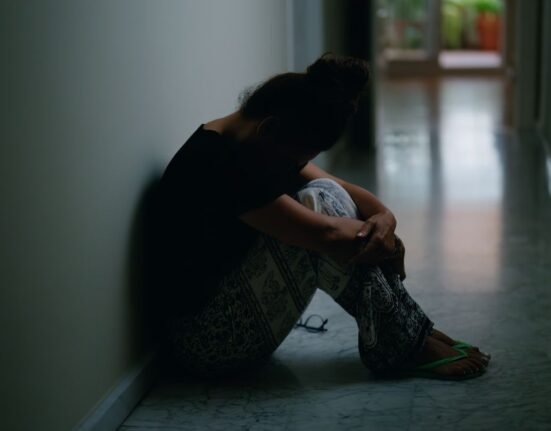Most people have temporary fear of coronavirus. While there are some who are overly afraid of its serious consequences. They prefer to avoid medical care, isolate themselves from others or weaken with fear. While others take over social media and start hashtags like coronaphobia and coronaparanoia, just to share their anxieties about it, with others, with some humor. If you too feel anxiety, don’t worry, you are not alone. Every one out of four people is very or extremely worried about contracting COVID-19 or if their loved ones are infected with it.
Following the surge of COVID-19 cases in China, any wonder when will it all end?
Even after three years of living with the pandemic, a lot of people still fear COVID. In December 2020, researchers labelled a term called “ corona phobia”, which is a new type of anxiety specific to COVID-19. As this phobia continues, people are concerned about losing a loved one or even their life without work.
However, there are many factors causing Corona phobia. These include adopting new schedules and avoidance behavior, as well as the worry which arises when your favourite celebrity gets infected. Spending much of their time on social media platforms is also one of the reasons for this phobia.

Professionals said, “since the pandemic, there has been a rise in overall emotional distress, depression and anxiety among individuals. There are also many patients coming up with alcoholism or sleeping disorders. People who are vulnerable to mental or physical health problems are specifically at risk”.
How to know when these fears of coronavirus are out of your control? And what can be done about it?
All these signs when occurring individually are not a problem but when they occur together, they become persistent and affect us in a negative way.
Corona phobia can be treated in many ways. Most successful among them is cognitive behavioral therapy (CBT).To help you restructure your thoughts and restore a sense of equilibrium.
Some signs to note when your anxiety is out of control
The fear or anxiety you face is intense and persists for a longer time.
It is hard to stop worrying about COVID-19.
You wear a mask and gloves to a public place where social distancing is possible, since your fear is out of proportion to the actual danger.
You knowingly avoid places, people or activities, even when they are safe.
You spend a lot of time checking your body for signs and symptoms or searching the internet about the virus.
You are overly obsessed about cleaning, washing, and decontamination.
Other ways to deal with it are
1) Engage in self-careOne must prioritize self before others. Have a good sleep, eat nutritional diet, exercise and enjoy fresh air. Form a support system, socialize and stay connected with friends and family.
2) Cautious of drug use and alcohol: People suffering from anxiety and depression, often go after substance overuse. It is in itself a disorder and requires treatment.
3) Support and reassure oneself that it will get better: For many, the anxiety will get better as the threat of COVID-19 passes. And even still it doesn’t go away, it needs to be treated.
4) Change your ‘information diet’: Reading the horrors of COVID-19, that many cases are rising, will only increase your anxiety not suppress it. So, instead, spend time focusing on positive things that happened around you or positive effects created due to it in order to distract yourself from anxious thoughts.
5) Think logically about the risk: Pandemic has become a tragedy for many families but how we think about the consequences of contracting COVID-19 depends person to person. Also keep this thing in mind that many people caught up by this virus have recovered well. The number of cases are constantly falling down, vaccines are there for your precaution.
6) Reduce the focus on your body: People usually pay unnecessary attention to the details of their body that they wouldn’t notice otherwise, due to which they end up getting more anxious. Take your mind off such things and focus on positive factors and engage in enjoyable activities.
7) Take things at your own pace: Do things at a speed which is comfortable for you, no need to rush things, it’s ok to do it slowly. Take one step at a time, do one activity at a time and then slowly build up your confidence.
8) Channelize your anxiety into action: You can not help the things that are not in your control. What is in your control is yourself, so focus on it, look after your mental health, take a good diet, sleep well, do exercises and fun activities, try to stay social and connect with everyone.
9) Get some professional help: Engage with a professional psychologist who specializes in anxiety and seek help from them.
What can be done for children
1) Have an honest and open discussion with your child: Ask them to share what they are anxious about, talk about their worries. Address their concerns rationally and provide them with a solution about how to manage their fears and stresses.
2) Model brave behavior: Children pick up on our anxiety and fears and they further aggravate. Model brave behaviors to show that it is OK to go outside, and it is safe. Start with a walk in the park on the weekend together and then move to attending school. Firstly, relieve your own anxiety in order to help your child relieve his.
3) Get professional help: When after everything his anxiety isn’t lessening, then it is essential to get professional help. You can start with seeking help from a psychologist or GP who specializes in anxiety.













Leave feedback about this